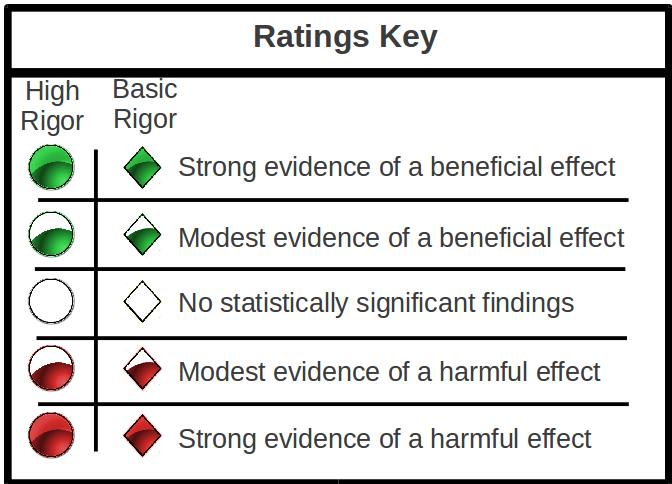Mental Health
A significant share of individuals confined in correctional institutions experience severe mental illnesses; of those, many have co-occurring physical health and substance use issues. These individuals do not always receive needed treatment or medication to address their mental health needs, either inside or outside the correctional institution. The barriers they must overcome in order to access care are significant and can present serious consequences. For instance, a period of incarceration may result in suspension or loss of Medicaid eligibility, and restoring eligibility can take several months. This can result in an interruption in receiving prescriptions and put a person at a higher risk of relapse and recidivism.
This section provides an overview and examination of key evaluative research related to mental health programming for incarcerated populations and those recently released from prison. This research investigates the relationship between an individual’s mental health and the likelihood that he or she will recidivate. Below, we highlight the results and conclusions of mental health research that met our criteria for methodological rigor, and provide a basis for comparing and discussing effective strategies currently practiced in the reentry field for both overcoming barriers to access to mental health care and treating mental health.
… (more)
-
Connections ProgramEvaluations:1 High RigorThe Connections program was a case management initiative designed to serve mentally ill individuals released from jail to probation in San Diego County, California; the program was based on the principles of Assertive Community Treatment, which calls for the provision of intensive services in the community upon reentry, particularly for the mentally ill.
-
Lifestyle Change ProgramEvaluations:1 Basic Rigor
The Lifestyle Change Program consists of three phases: a 10-week psychoeducational class called Lifestyle Issues (Phase I); a series of three classes, referred to as Advanced Groups, lasting 20 weeks each (Phase II); and a relapse prevention group that meets for 40 weeks (Phase III).
-
Medicaid Benefits for Mental IllnessEvaluations:1 Basic RigorMedicaid benefits may provide one method of allowing access to healthcare services for the formerly incarcerated, which could in turn be theorized to improve reentry outcomes; the study reviewed here assessed the effect of being enrolled in Medicaid benefits at the time of release from jail on recidivism outcomes among a population of individuals with a severe mental illness.
-
Mental Health Services Continuum ProgramEvaluations:1 High Rigor
The Mental Health Services Continuum Program (MHSCP) was implemented in California state prisons and consisted of multiple components designed to increase continuity of mental health care during reentry into the community from prison.
-
Mentally Ill Offender Community Transition ProgramEvaluations:1 Basic RigorThe Mentally Ill Offender Community Transition Program (MIOCTP) was established in 1998 by the Washington State legislature and was designed to incorporate both clinical treatment elements and enhanced interagency collaboration between the Departments of Corrections and Mental Health.
-
Moving OnEvaluations:1 Basic RigorMoving On is a program for female inmates that was adopted by the Iowa Department of Corrections in 1998 – the program aims to reinforce participants’ existing strengths, to assist with reentry into the community, and to provide women with an environment in which they feel respected and supported.
-
Psychoeducational Component of the EQUIP ProgramEvaluations:1 Basic Rigor
The EQUIP program is a multicomponent cognitive-behavioral program, and the study reviewed here investigates the psychoeducational component of the program, the goal of which is to foster strong interpersonal skills between inmates and within inmate group classes in order to reduce within-facility infractions as well as recidivism upon release to the community.
-
Social TherapyEvaluations:1 Basic Rigor
The treatment evaluated by the present study involved serving one’s prison sentence in one of two social-therapeutic institutes (as opposed to normal prison).
-
Transcendental MeditationEvaluations:1 High RigorThe Transcendental Meditation™ program features the teachings of Maharishi Mahesh Yogi, who has posited that mistakes ranging from small moral errors to criminal acts occur because of mental stress – when applied to the prison setting, the theory is that TM enabled offenders to rehabilitate by achieving freedom from mental and physical stress through daily meditation.
-
Violence Prevention ProgramEvaluations:1 High RigorThe Violence Prevention Program (VPP) was developed by the Correctional Service of Canada with the intent to decrease violence and recidivism among those convicted of violent offenses – the program focused on high-risk male prisoners and sought to impart skills that would allow them to identify past lifestyle choices that led to violence and become more aware the potential for violent situations in the future.
-
Washington State’s Dangerous Mentally Ill Offender ProgramEvaluations:1 Basic Rigor
Washington’s Dangerous Mentally Ill Offender (DMIO) program consisted of legislative directives, passed in 1999, that used state funds to provide transition services for those classified as “dangerous mentally ill offenders” in order to improve their access to social services in the community.
